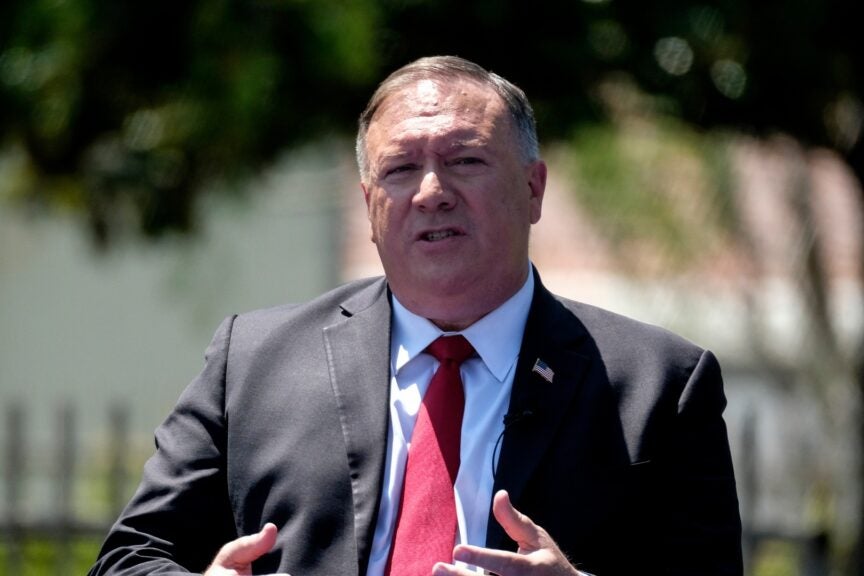Pompeo’s Endorsement: A Game-Changer for US Steel and National Security
In a significant turn of events in the American manufacturing landscape, former Secretary of State Mike Pompeo has publicly endorsed Nippon Steel’s ambitious $14.9 billion acquisition of US Steel. This endorsement is not merely a corporate endorsement; it carries profound implications for national security and the future of American manufacturing. As the U.S. grapples with the complexities of foreign investment and its implications for national interests, Pompeo’s backing raises crucial questions about the balance between economic growth and safeguarding domestic industries.
Nippon Steel’s Strategic Move
Nippon Steel, one of the largest steel producers in the world, has set its sights on US Steel, a company with a storied history and a significant role in the American industrial sector. The acquisition, if successful, would not only bolster Nippon Steel’s position in the global market but also enhance its operational capacity in the U.S. The deal represents a strategic response to the ongoing challenges in the steel industry, including fluctuating demand, rising costs, and increasing competition from other nations.
The National Security Angle
Pompeo’s endorsement is particularly noteworthy given the national security implications associated with such a large foreign investment. The steel industry is not just vital for economic reasons; it is fundamental to national defense. Steel is essential for manufacturing military vehicles, weapons, and infrastructure. A strong domestic steel industry ensures that the U.S. has a reliable supply chain for these critical materials.
In recent years, concerns have been raised regarding the dependency of the U.S. on foreign steel, particularly in light of trade tensions and geopolitical issues. By endorsing Nippon Steel’s acquisition, Pompeo suggests that the deal could lead to enhanced capabilities and resilience within the American steel supply chain. However, this perspective is not universally accepted, and critics argue that such foreign ownership could undermine American manufacturing sovereignty.
Potential Benefits of the Acquisition
Advocates for the acquisition highlight several potential benefits, including:
- Increased Investment: Nippon Steel’s financial investment could lead to modernization and expansion of US Steel’s operations, potentially creating jobs and boosting local economies.
- Technological Advancements: The infusion of new technologies and processes from Nippon Steel could enhance production efficiency and reduce environmental impact.
- Market Stability: A stronger Nippon Steel could provide stability in the steel market, benefiting American manufacturers reliant on steel as a raw material.
Concerns Regarding Foreign Ownership
Despite the potential advantages, the acquisition raises significant concerns among various stakeholders:
- Loss of Control: Critics worry that foreign ownership could lead to decisions driven by Nippon Steel’s interests rather than those of American workers and communities.
- Job Security: There is apprehension that consolidating operations under a foreign entity could result in job losses or shifts in employment dynamics.
- Supply Chain Vulnerabilities: Increased foreign control over critical infrastructure may pose risks in times of geopolitical strife.
The Broader Implications for American Manufacturing
The endorsement and the potential acquisition come at a time when American manufacturing faces unprecedented challenges. The COVID-19 pandemic highlighted vulnerabilities in supply chains, and ongoing trade disputes have added complexity to the landscape. As the U.S. government seeks to revitalize domestic manufacturing, the response to foreign investments in critical sectors will be pivotal.
Policy Considerations
In light of these developments, policymakers must navigate a delicate balance. The Committee on Foreign Investment in the United States (CFIUS) plays a crucial role in reviewing foreign acquisitions of U.S. companies to ensure they do not pose threats to national security. The Pompeo endorsement may influence CFIUS deliberations, but it also underscores the need for rigorous scrutiny of foreign investments.
Domestic Industry Support
As the acquisition process unfolds, it is essential for the U.S. government to support domestic steel producers. This could take the form of:
- Increased Tariffs: Implementing tariffs on imported steel can protect domestic producers from unfair competition.
- Subsidies and Incentives: Offering financial support to domestic manufacturers can foster growth and innovation within the industry.
- Workforce Development: Investing in training programs to equip workers with the skills needed for modern manufacturing jobs is crucial for the industry’s sustainability.
Conclusion: A Critical Juncture for American Steel
The endorsement of Nippon Steel’s acquisition of US Steel by Mike Pompeo marks a significant moment in the intersection of foreign investment and national security. As stakeholders weigh the potential benefits against the risks, the implications for American manufacturing and economic policy cannot be overstated. The future of the steel industry—and, by extension, the broader manufacturing sector—hangs in the balance as the U.S. navigates this complex landscape.
Ultimately, the outcome of this acquisition will not only affect the companies involved but will also serve as a bellwether for the approach the U.S. takes toward foreign investment in critical industries moving forward. The decisions made today will shape the fabric of American manufacturing for years to come, impacting everything from jobs to national security.
See more Business Focus Insider Team

